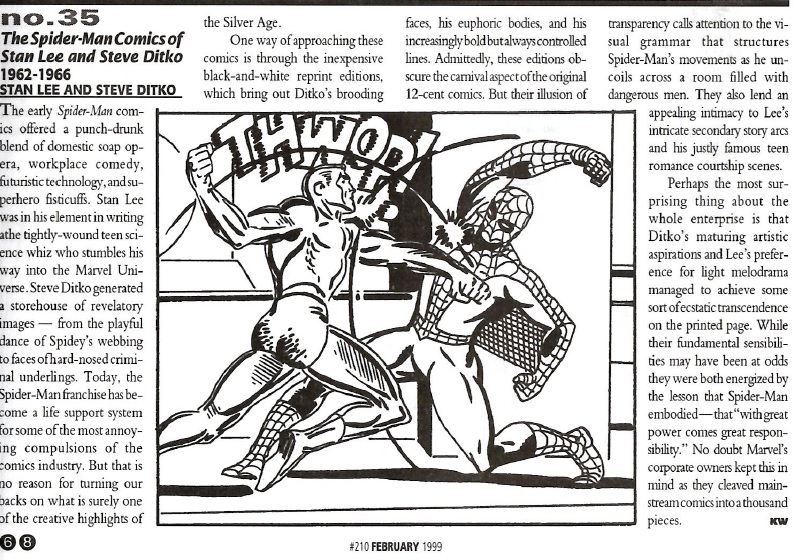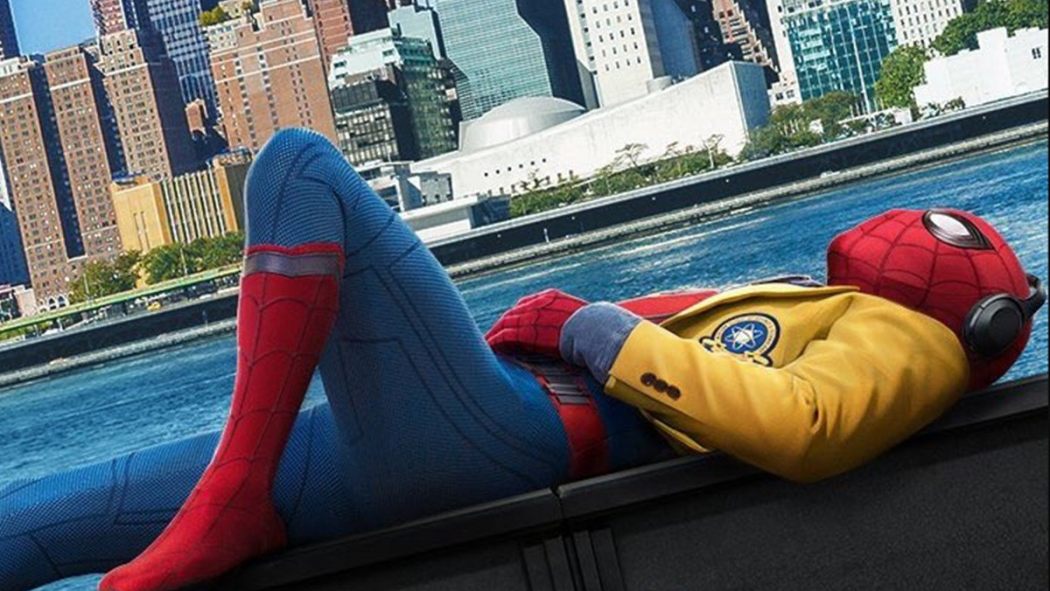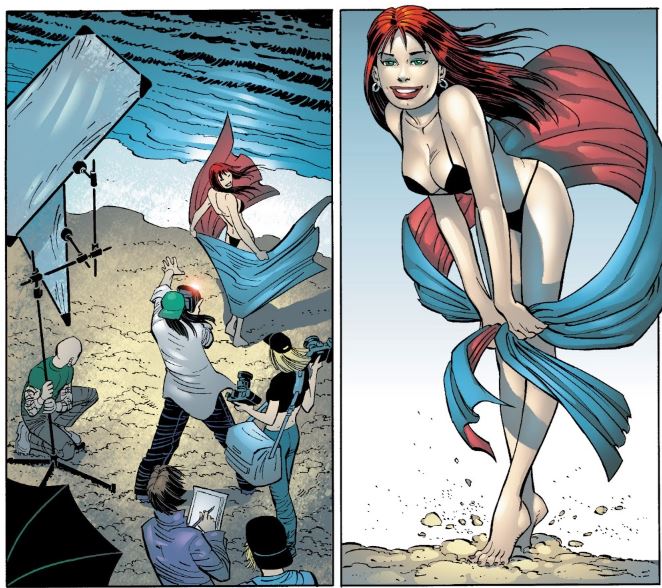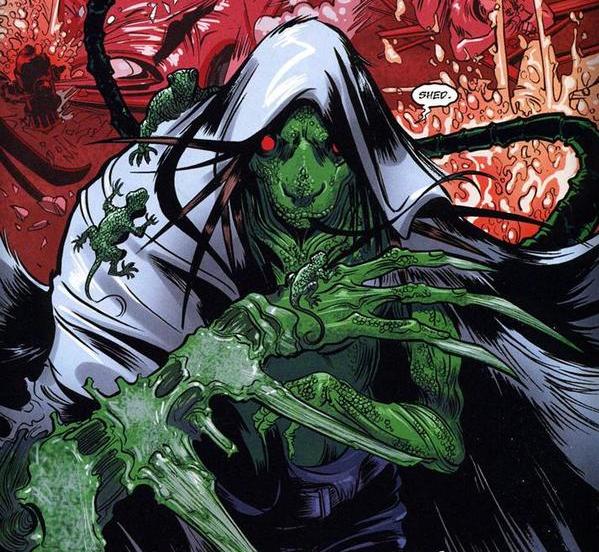
Recently, I bought a special produced by the British publisher responsible for the magazines Total Film and SFX on The 100 Greatest Graphic Novels Of All Time. The title was a slight misnomer, as it’s a bit of a mix of trade paperback length material and comic book runs, albeit runs collected in TPB form.
One interesting thing about it is that there were no Spider-Man comics in the selection. So I started wondering why that is. This is a character who is immensely popular, and who has appeared in thousands of comics by decent talent, but Spider-Man is typically not very well-represented in lists of the best comic books ever. The Comics Journal’s list of the Top 100 comic books of the 20th century did include one entry of Spider-Man material. A Wizard magazine list had three Spider-Man stories: the Ultimate Spider-Man oversized hardcover (collecting the first 13 issues and Amazing Fantasy #15), Nothing Can Stop the Juggernaut, and Spider-Man VS. Venom. A Top 100 list determined by the readers of Comic Book Resources had four entries: The Death of Jean Dewolff in 95th place, the Master Planner saga in 41st place, The Night Gwen Stacy Died in 35th place, and Kraven’s Last Hunt in 13th place.
I considered potential explanations for the omission of my favorite character from a rather lengthy list that’s likely to include comics most of you haven’t heard of.
Explanation #1: Perhaps It’s Well-Deserved
There may be an argument that Spider-Man comics just might not be that good. A list of 100 comics out of hundreds of thousands eligible is going to leave out a lot of good material, so maybe there are plenty of good Spider-Man comics, but not enough truly great ones.
A slightly nicer way of phrasing this might be to ask if Spider-Man is the equivalent of a great TV show that doesn’t lead to individual great episodes, so that an appreciation of a character is developed through reading many stories by many different writers and artists, in a way that isn’t reflected in a list of runs or TPBs. I don’t really buy this one, given the number of good Spider-Man comics someone could pick.
Based on the standards of this particular list, I’d sure as hell include the following in my Top 100.
- “Learning Curve” (Ultimate Spider-Man #8-13, although I can be persuaded to count the entire run.)
- Kraven’s Last Hunt
- “The Night Gwen Stacy Died”
- Roger Stern’s Amazing Spider-Man
- Lee/ Ditko Amazing Spider-Man
Explanation #2: Perhaps it’s a list of Comix and not Comics
Obviously there are going to be some comic book fans who don’t like the same stuff we do, and don’t care for the dominance of the superhero genre. About two-thirds of the stories in the list aren’t traditional superhero stories (your count might vary if you would consider The Invisibles or Preacher to be a superhero comic) so that can be a partial answer, but not a very adequate one.
Years ago, The Comics Journal’s Top 100 comics list compared everything published including comic strips that lasted for generations, as well as stories from anthologies. Peanuts was alongside Maus, which was alongside V For Vendetta, which was alongside the Al Feldstein/ Bernard Krigstein EC Comics story “The Master Race.” But the Lee/ Ditko Spider-Man run still made the cut among those elitists.

The top comic of the Total Film/ SFX list was Alan Moore and Dave Gibbons’ Watchmen. Gaiman’s Sandman and Frank Miller’s The Dark Knight Returns made the top ten.
A few Marvel mini-series where Spider-Man made an appearance popped up on the list. This included Marvel: 1602 at 77th place, The Infinity Gauntlet at 69th, and Marvels at 38th. According to these guys, by killing off the 1602 Peter Parker in Spider-Verse, Dan Slott may have been responsible for removing a character who was in a better story than anything starring the original Spider-Man.
The X-Men had three appearances with Joss Whedon and John Cassady’s Astonishing X-Men run in 60th place, Days of Future Past in 56th place, and the Dark Phoenix Saga in 33rd place. Daredevil: The Man Without Fear was in 46th place, although Born Again—a strong contender for the best Marvel comic ever—did not make the cut.
Batman was well-represented with The Long Halloween at 83rd place, Hush at 61st, Mad Love at 49th, Killing Joke at 39th, Arkham Asylum at 26th, and Year One at 15, in addition to Dark Knight Returns. Superman had a few appearances, with Superman For All Seasons at 65th place, Whatever Happened to the Man of Tomorrow at 58th, Red Son at 42nd, and All-Star Superman at 13th . Kingdom Come, where he is essentially the lead, was at 75th place.
So it’s not just an issue of snobs ignoring superhero comics.

Explanation #3: Lack of Good TPBs
Spider-Man has generally not been represented by TPB length stories to the same extent that other heroes are, and this is the type of thing that can hurt in a list of the best graphic novels. DC excels in this particular category given how many of their best comics are mini-series/ graphic novels, or brief standalone runs on a regular title.
Kraven’s Last Hunt is good, and probably should be in a Top 100, but it’s not the kind of comic you should clearly rate above DC’s New Frontier or Alison Bechdel’s memoir Fun Home. The same would be true of Spider-Man Blue and The Death of Jean Dewolff. There is no way in hell Batman: Hush beats Kraven’s Last Hunt though.
Explanation #4: Inaccessibility
There were also some series that made the list, including Matt Fraction and David Aja’s Hawkeye at 92, Marv Wolfman and George Perez’s New Teen Titans at 91, Lumberjanes at 82, and the manga Death Note at 76. You get the point. However, Spider-Man may not be very well-suited to dominate in this category either. For a long time, the character appeared in multiple titles, which could make determining certain things difficult. Peter David’s 1980s run of Peter Parker the Spectacular Spider-Man includes fill-ins, references events in other books, and is complicated by his occasional work on other Spider-Man titles at the time (Should the Commuter story, or Jonah spotlight in Web of Spider-Man #13 count as part of that run?) DeMatteis’s Harry Osborn saga touches on the robot parents. Roger Stern’s Amazing Spider-Man is one of the best regarded runs, but it is somewhat incomplete, as major developments occur in Mantlo’s Peter Parker the Spectacular Spider-Man, while the big ongoing storyline of the Hobgoblin mystery is eventually taken over by other writers.
Many key Spider-Man comics build on earlier continuity. Kraven’s Last Hunt featured a rematch between Spider-Man and a bad guy he had fought in one issue of Marvel Team-Up. A key scene was the funeral of a crook who had popped up in the preceding issue. It was set shortly after Peter’s marriage, at a time when he was traumatized by the death of his friend Ned Leeds, an event that informed the story. Things that made the story more rewarding for existing readers make it somewhat less accessible to newcomers.

Explanation #5: Some of the best Spider-Man stories are just too short
Some of the major Spider-Man touchstones are just not going to lend themselves to this kind of list. Two mainstays on lists of the best Spider-Man comics are eleven page stories: the origin from Amazing Fantasy #15, and “The Kid Who Collects Spider-Man” from Amazing Spider-Man #248. Add to that two very well-regarded two parters “The Night Gwen Stacy Died” and “Nothing Can Stop the Juggernaut.” The Master Planner Saga is a three-parter. “Spider-Man No More” can count as a one-off, or the beginning of a three-parter.
A handful of shorter comics did make the list, but it was six comics out of a hundred that were under 70 pages. Aside from four mentioned earlier, there was Neil Gaiman and Dave McKean’s Violent Cases one-shot, and Gaiman and Chris Bachalo’s Death mini-series.
Explanation #6: Bias Against Older Comics
This is possible, given the complete absence of any material before the mid-1970s on this list. This means there was no Jack Cole Plastic Man, no Will Eisner Spirit, no Carl Barks Uncle Scrooge, no EC, no Tintin, and no Lee/ Kirby Fantastic Four, to say nothing of the Lee/ Ditko and Lee/ Romita runs of Amazing Spider-Man, or the Spider-Man comic that ended the Silver Age.
A related trend I’ve noticed is that some lists of the best comics include the Kurt Busiek/ Alex Ross mini-series Marvels, but not the stories it references like the Galactus saga, and Death of Gwen Stacy. I wonder if editors feel it’s redundant.
Explanation #7: Spider-Man’s Appeal Is Varied
There are a lot of good Spider-Man stories and runs, but one result when people have different favorites is that the impact of any one story would be diminished. Fans who can appreciate silver age style—and some readers can’t—could still be divided between those who prefer the unconventional Lee/ Ditko run, and those who prefer the dynamic Lee/ Romita run. Roger Stern’s run is a much-enjoyed older comic that would appeal to readers who don’t care for the modern cinematic style, but view the Silver Age as too dated. Slott’s run has a modern self-referential take, but is stylistically distinct form many newer comics. If you like modern cinematic storytelling, you’ve got the regular Marvel Universe and the Ultimate books. In the classic universe, the JMS/ Romita Jr Amazing Spider-Man run (focusing on new villains, and keeping the supporting cast to a minimum) is a different type of experience than Mark Millar’s twelve issue Marvel Knights Spider-Man, which has many guest stars and name villains. Bendis’s Ultimate Spider-Man has its own divide between the readers who liked following a teenage Peter Parker in the 21st Century, and those who think Miles Morales is a better personification of Spider-Man in the modern era. When a group of critics is trying to figure out what favorite works they have in common, it could be that most of them like Spider-Man, but not the same Spider-Man comics as the others.
If you’re a fan of Captain America, the Winter Soldier arc is going to dominate the discussion a lot more.

Explanation #8: Spider-Man Writers May Not Be Big Enough Names
Roger Stern and JM DeMatteis are great writers, and there is an argument that their best work wasn’t with Spider-Man due to Avengers: Under Siege, and Justice League International. But they’re not the names who dominate lists of the best comic books. Spider-Man hasn’t had a great run by Alan Moore, Grant Morrison, Neil Gaiman, Frank Miller (who did contribute some good stuff) or Warren Ellis, which means that their fans are less likely to remember and advocate for a particular one-off.
Explanation #9: British Comics Culture
SFX and Total Film are British magazines, so it’s possible that their staff is going to have different touchstones and preferences than American fans. The writer John Wagner had three entries, while writer/ artist Bryan Talbot had four. Some of Alan Moore’s obscure early work like Halo Jones made the cut. Marvel comics were often published in unusual ways in Great Britain, which would also affect the ways readers are exposed to the comic.
You’d think that the internet would homogenize things to the extent that readers would know what’s well-regarded and seek that out; that may be mostly true, but this is a small thing that can make a difference on the margins.
Explanation #10: Weird Tastes of the Guys Coming Up With the List
It could be lucky flukes that lead to Batman Hush making the cut, but not “The Night Gwen Stacy Died.” For all I know, it was just random chance that there were three Batman fanatics at the office, rather than three Spider-Man fans.
For me as a reader, there may be some advantages to this. There is greater value in seeing a comic I’ve never heard of in a top 100, like John Wagner and Arthur Ranson’s Button Man- The Killing Game, or Guy Delisle’s memoir of working in North Korea, than in hearing more about why a story I read and appreciate is good. I’m not really into Judge Dredd, but the two stories on the list appear to be decent entry points. While I complain about the lack of Spider-Man, I did definitely get some leads on some good comics.

Explanation #11: Perhaps the character is tainted
I suppose one possibility is that controversial developments in the Spider-Man comics (One More Day, the death of Ultimate Peter Parker) have tainted the earlier issues to the extent that critics don’t like it as much as they used to. Controversial storylines didn’t hurt Batman, Superman or the X-Men though. And in Batman’s case, some of the most controversial stuff was by writer/ artist Frank Miller who was twice-honored.
Explanation #12: Logistics Stuff
The Killing Joke just came out as a DVD, so it makes sense to have that on the cover. Other entries gave the magazine an opportunity to reuse interviews and previous articles. So it could be that some stories got a bump for reasons that aren’t entirely about quality.
This does appear to be a list that no one has gone through the effort of copying to put on the internet, so it’s not all that important. In my attempts to find a ranking to link to, I have an easier time finding ways to download the entire issue than to just show the results.
I still the lack of Spider-Man material is noteworthy, if only because of how it seems to reflect a larger trend. To a extent, these kind of things frame the discussion for how the comics are seen. It’s often used by new readers to find more material.
What do you guys think? For those of you who read a lot of comics, how well is Spider-Man represented in your list of favorites?
Does this demonstrate a need for Marvel to do anything? Is there a wider meaning? Is a new policy recommended? Hell, do TPBs even mean as much in the digital era?










I was somewhat against you until you started to say which stories actually did make the cut!
Anything that already has that much Loeb (including vapid crapola like Hush) has no excuse not to include something like Blue. Batman does not need seven entries on such a list.
So at least swap out Loeb’s Hush for Loeb’s Blue.
————————————
After checking it out myself its not such a bad list, too many American superhero comics and too few Japanese and French comics, but I guess that’s to be expected at this stage.
————————————-
In regards to “British Comics Culture” we have access to all the major US comics, and they haven’t really been published in an notably unusual fashion since the 1980s at latest.
If anything I find that American lists are incredibly America-centric.
I’m happy for your achievement, actually! Tain’t easy getting a Master’s.
I actually saw this book in PREVIEWS, I can see not ordering it wasn’t
a terrible, awful, bad decision.
Whip them kids into shape, they gotta learn to read and write well so
they can get into comics and eventually get rid of a certain terrible, awful,
really, really stupid retcon — please?!
@herbidepopnecker- The bio’s been fixed.
As for the rest, I’ve got a different view, and not just on the quality of the books under Slott. What seems to happen when people don’t like the current direction of the title is that they advocate for earlier directions and milestones. For example, a good story with the marriage carries a special resonance post-One More Day, so people become more likely to express support for the story than before.
I think it’s a little like a “100 Best Main Dish Recipes” book not including Chili Mac-&-Cheese. Spider-Man is pop culture comfort food. And the guys below are right, Slott has dumbed the series down to a sixth-grade level.
Hard to consider Spider-man stories when they’ve been terrible for years and years. Once a new writer takes over the main book and were done with slott, people might look favorably at spider-man again. I just fear Slott has muddy’d spider-man’s reputation and that when people think of him now they think of Slott’s character and not the character we all know and love.
I sincerely believe that part of Spider-mans current irrelevance stems from the fact that he’s been written by Dan Slott for almost a decade now. Slotts writing is geared towards children 10 and younger and will never be respected by people looking for the cream of the crop among comic books as a medium. And the longer he writes the title the more the character becomes synonymous with flashy adolescent fantasy trash. There are some truly great things being done in the comics medium. With Slott permanently at the helm, Spider-man is being left behind. People will forget over time the importance that Spider-Man once had.
Also, let’s face it. Spider-man is no longer an actual character. He’s become a figure head of the company like Mickey Mouse. An image or “spider-flavor” that can be applied and reapplied to match any scenario. His brand is completely diluted by marvels need to create so many spider people to fulfill every potential gender and race that he’s no longer a character in his own right. Marvel doesn’t remember who Peter Parker is anymore because there isn’t a Peter Parker anymore. There’s “spider-fill in the blank” and they’re all interchangeable.
Erm…..you have a Master’s deFree??
Well, congratulations….I guess! 🙂